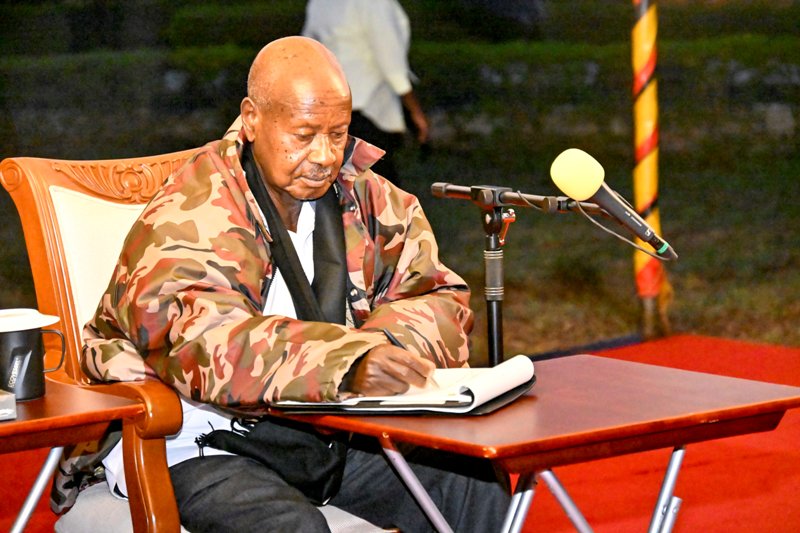From side arms to anti-aircraft guns, learn what weapons are now restricted as Museveni assents to the UPDF Act
Failure to comply could lead to prosecution, with some speculating that possession of Schedule 7A weapons may fall under military jurisdiction, given their classification.

The President of Uganda, Yoweri Museveni, has officially signed the Uganda Peoples’ Defence Forces (Amendment) Act, 2025 into law, marking a key milestone for UPDF reforms. The law will define Uganda’s gun ownership landscape and classifies weapons as exclusive to the military.
The newly created Schedule 7A under Section 117A of the Act lists pistols once accessible to licensed civilians and private security firms among a range of military-grade weapons that are now the sole monopoly of the Uganda Peoples’ Defence Forces (UPDF).
What’s Now Restricted?
The list isn’t limited to pistols. It includes some of the world’s most lethal firearms and heavy artillery. From the AK-47 and PKM machine guns, to rocket-propelled grenades (RPG-40), mortars, and anti-aircraft guns, these weapons are now completely off-limits to civilians, private entities, and even other government agencies outside the military.
Other weapons named include the Micro Galil, Uzzi guns, light and general-purpose machine guns, and semi-automatic rifles all now firmly under UPDF control.
The biggest shocker for many, however, is the inclusion of pistols a weapon commonly associated with personal protection for VIPs, private security companies, and some licensed civilians.
Until now, pistols were seen as a reasonable middle ground in firearm control less dangerous than automatic rifles but still effective for defense. The amendment flips this script entirely. Under the new law, possession of a pistol by any unauthorized individual is now illegal and likely to attract serious consequences.
Security, Control, and Accountability
Security experts say the changes reflect a desire by the state to tighten control on weapons circulation, especially in urban areas where gun-related crimes and misuse of licensed arms have been rising.
“This law is a signal that the government wants to reassert its monopoly over lethal force,” says a Kampala-based security analyst. “By centralizing access to all military-grade weapons pistols included it minimizes risk, misuse, and potentially unmonitored transfers.”
Indeed, Uganda has faced several high-profile gun violence incidents in recent years, some involving private security guards or firearms allegedly obtained through corrupt licensing processes.
Implications for Civilians and Security Firms
The implications are far-reaching. Civilians previously owning pistols under legal licenses may now be required to surrender them, and private security companies will need to review their arsenals and possibly downgrade to non-restricted firearms.
Failure to comply could lead to prosecution, with some speculating that possession of Schedule 7A weapons may fall under military jurisdiction, given their classification.
“This isn’t just an administrative change, it alters the power dynamics of security provision in Uganda,” said a legal expert who requested anonymity. “It could challenge how VIPs and private institutions manage their safety.”
While the UPDF Amendment Act may not make daily headlines for the average Ugandan, its effect will ripple through sectors quietly especially in private security, law enforcement coordination, and gun licensing policy.
And as the list under Schedule 7A makes clear, the message from government is firm: firepower belongs to the armed forces.







